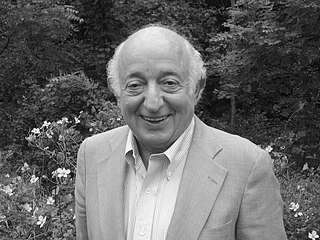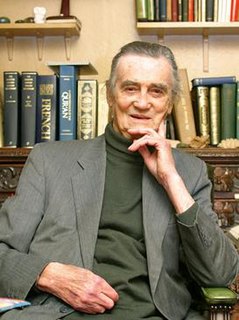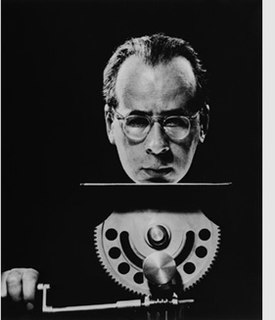A Quote by Michael Dirda
While Napoleon believed his fortunes to be governed by destiny, his real genius lay in self-control and martial daring coupled with an indomitable will to power.
Related Quotes
This soldier, I realized, must have had friends at home and in his regiment; yet he lay there deserted by all except his dog. I looked on, unmoved, at battles which decided the future of nations. Tearless, I had given orders which brought death to thousands. Yet here I was stirred, profoundly stirred, stirred to tears. And by what? By the grief of one dog. Napoleon Bonaparte, on finding a dog beside the body of his dead master, licking his face and howling, on a moonlit field after a battle. Napoleon was haunted by this scene until his own death.
The only distinction between freedom and slavery consists in this: In the former state a man is governed by the laws to which he has given his consent, either in person or by his representative; in the latter, he is governed by the will of another. In the one case, his life and property are his own; in the other, they depend upon the pleasure of his master. It is easy to discern which of these two states is preferable.
A genius is the man in whom you are least likely to find the power of attending to anything insipid or distasteful in itself. He breaks his engagements, leaves his letters unanswered, neglects his family duties incorrigibly, because he is powerless to turn his attention down and back from those more interesting trains of imagery with which his genius constantly occupies his mind.
Carl Furillo was pure ballplayer. In his prime he stood six feet tall and weighed 190 pounds and there was a fluidity to his frame you seldom see, among such sinews. His black hair was thick, and tightly curled. His face was strong and smooth. He had the look of a young indomitable centurion ... I cannot imagine Carl Furillo in his prime as anything other than a ballplayer. Right field in Brooklyn was his destiny.
Nothing is so much coveted by a young man as the reputation of being a genius; and many seem to feel that the want of patience for laborious application and deep research is such a mark of genius as cannot be mistaken: while a real genius, like Sir Isaac Newton, with great modesty says, that the great and only difference between his mind and the minds of others consisted solely in his having more patience.
Certain mystical philosophers have personified Destiny, and from this point of view each man's personal destiny is his archetype or "other self"--his "angel"--with whom he must be reunited if he is to rise above his fragmentary identity as a worldling and become whole, as he is (and always has been) in the mind of God.
Psychopaths have a grandiose self-structure which demands a scornful and detached devaluation of others, in order to ward off their envy toward the good perceived in other people. He will choose you, disarm you with his words, and control you with his presence. He will delight you with his wit and his plans. He will show you a good time but you will always get the bill. He will smile and deceive you, and he will scare you with his eyes. And when he is through with you, and he will be through with you, he will desert you and take with him your innocence and your pride.
No man, however enslaved to his appetites, or hurried by his passions, can, while he preserves his intellects unimpaired, please himself with promoting the corruption of others. He whose merit has enlarged his influence would surely wish to exert it for the benefit of mankind. Yet such will be the effect of his reputation, while he suffers himself to indulge in any favourite fault, that they who have no hope to reach his excellence will catch at his failings, and his virtues will be cited to justify the copiers of his vices.




































